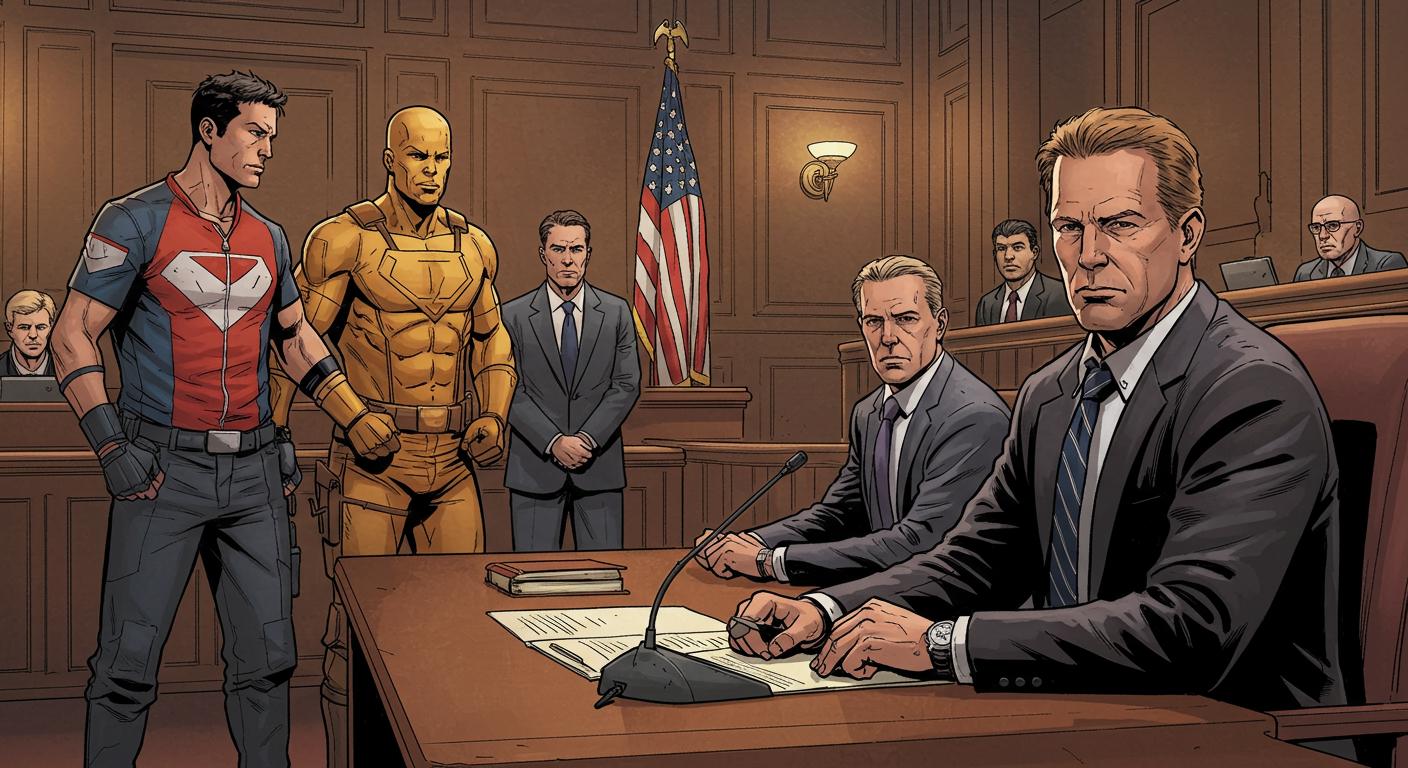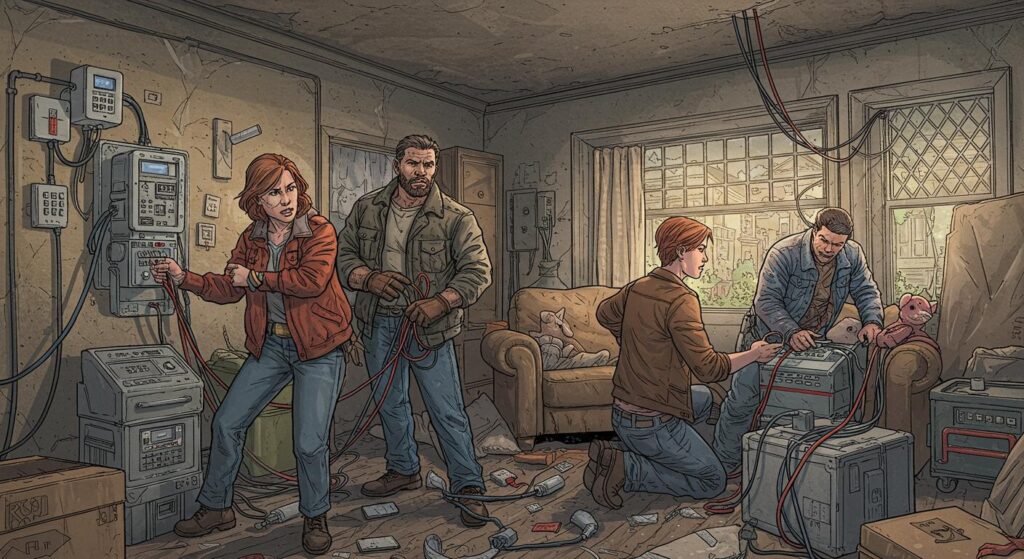Hollywood has always been a place where stories go off the rails—sometimes literally, sometimes figuratively, and, if a recently filed lawsuit is to be believed, sometimes both at once.
As reported in detail by The Hollywood Reporter, stunt performer Devyn LaBella filed a complaint alleging a deeply unscripted and unprotected experience on the Utah set of Kevin Costner’s ambitious Western, Horizon: An American Saga – Chapter 2. In a statement provided to the outlet, LaBella described her experience as follows: “On that day, I was left exposed, unprotected, and deeply betrayed by a system that promised safety and professionalism.” The phrase alone could give even a seasoned archivist pause—it’s not every day that a routine stunt gig veers so far into the unexpected.
A Scene Nobody Saw Coming
The lawsuit, as outlined by The Hollywood Reporter, alleges that LaBella was hired as a stunt double for actress Ella Hunt and was, by contract and union standards, supposed to have the protection of an intimacy coordinator for any intimate or nude scenes. The production’s first depiction of sexual violence, shot on May 1, reportedly checked all the boxes: the day’s call sheet included the scene, a stunt and an intimacy coordinator were present, the set was closed, and rehearsals proceeded as expected.
But the following day, according to the complaint described by the outlet, the script took a surprising and unwelcome turn. LaBella says she arrived on set expecting to perform fairly routine shots, only to be asked to stand in for Hunt right after the actress had left the set visibly upset. The suit claims that Costner, serving as director, had spontaneously added a new scene involving sexual violence—with no advance notice, no intimacy coordinator on duty, and, crucially, no rehearsal.
The Hollywood Reporter relays that LaBella was instructed to lie down on a wagon, at which point Costner allegedly directed actor Roger Ivens to simulate nonconsensual sex on top of her, as crew members watched the action unfold on set monitors. According to the suit, LaBella only discovered the true nature of the improvised scene as it was happening, with no clear “action” or “cut” being called, and found herself physically pinned per direction, with her undergarments being exposed—again, allegedly without any prior preparation from wardrobe.
Costner’s attorney, Marty Singer, disputed these allegations in a statement to the outlet. Singer insisted this was a rehearsal, not a filmed scene, and said cameras weren’t rolling. He added that stunt coordinators were present and claimed LaBella gave her stunt coordinator a “thumbs up” after the rehearsal, indicating willingness to proceed if needed. Singer further pointed to a thank-you dinner and apparently appreciative texts sent by LaBella after production as evidence that she had not voiced concerns about the experience at the time.
He Said/She Said (and the Role of Paperwork)
Within these competing accounts, the central issue comes down to process and protection. The complaint, as relayed by The Hollywood Reporter, contends that union and contractual safety protocols were discarded—no notice, no preparation, and a clear absence of the required intimacy coordinator. LaBella’s account states that after the incident, she was left shaken, repeatedly confined to her trailer, and ultimately sidelined from further work with the production team.
The defense, meanwhile, disputes both the severity of the event and the aftermath. As noted earlier in the report, Singer maintains that Costner prioritizes on-set safety and performer comfort, and that LaBella’s continued positive engagement with production staff contradicts her claims. Singer also responded that LaBella made no complaints to stunt coordinators and was apparently “in good spirits” at dinner the following evening.
The Hollywood Reporter outlines that LaBella was not called back for the third film in the series, and her prior working relationship with the film’s stunt coordinator, Wade Allen, ended after this project. According to the complaint, this led to what LaBella described as an “abrupt halt” to her career, leaving her with feelings of being “disposable” and “worthless.”
LaBella’s attorneys, backed by the Time’s Up Legal Defense Fund, have indicated that the point of the suit goes beyond compensation, seeking broader accountability for Hollywood’s alleged ongoing struggles with set safety regarding intimate and violent scenes.
Art, Power, and the Very Strange Definition of “Improvisation”
The Hollywood Reporter explains that the #MeToo movement prompted Hollywood to overhaul on-set protocols for intimate scenes, with the rise of dedicated intimacy coordinators and stricter union rules. The complaint notes that, in this case, intimacy coordination was not only standard but contractually mandated—a layer of protection meant to ensure precisely these kinds of incidents do not happen.
The lawsuit thus raises an unnerving issue: if a $100 million production with established stars and explicit safety clauses can allegedly go off script and off protocol in this way, what does that mean for smaller, less-scrutinized projects? As LaBella’s attorney James Vagnini observed to the outlet, “If it can happen on a size of a production worth $100 million or more, imagine what happens on smaller ones where you’re really trying to cut corners.” The uncertainty of enforcement—even when protections are inked in black-and-white—remains one of Hollywood’s stranger realities.
Throughout the dispute, both sides marshal their paperwork and post-incident recollections. But perhaps the weirdest part is just how fuzzy the line can be between “rehearsal” and “scene,” or between creative improvisation and violating agreed-upon boundaries. When industry progress depends on rules that can be bypassed by the pressures of on-the-fly direction, what actually stands between safe acting and something much riskier?
The Show Must Go On (But How?)
A central irony lingers: in Hollywood, make-believe is the goal, but the means of creating it require all-too-real protections. The question is whether those protections are merely paperwork or an everyday reality—especially when even blockbuster sets can allegedly default to “winging it.” Will productions respond by doubling down on oversight, or is this destined to become yet another story in the town’s long archive of boundary-blurring incidents?
For now, the lawsuit remains unresolved, with both LaBella’s team and Costner’s representatives expressing confidence in their positions. But as The Hollywood Reporter coverage makes clear, this case stands out as a particularly odd—and unsettling—reminder that the thin line between stagecraft and safety can vanish unexpectedly. In the end, who’s left holding the script, and who’s just expected to improvise? The archives of the truly strange have a new entry, and the credits have yet to roll.







